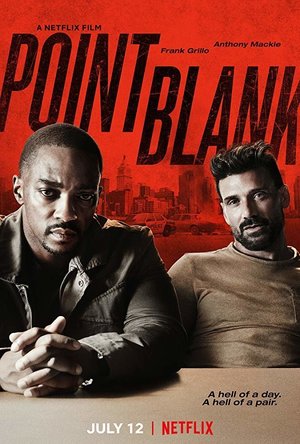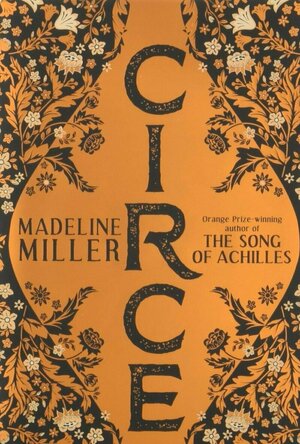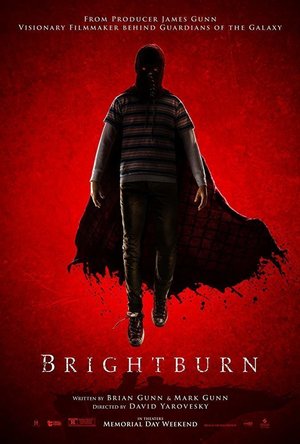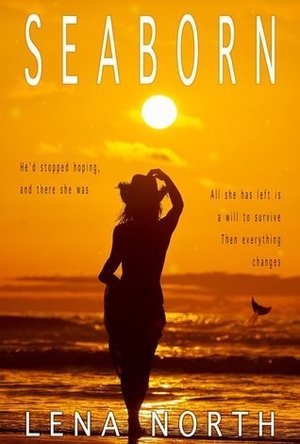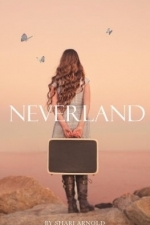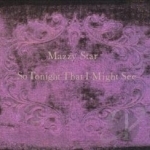Search
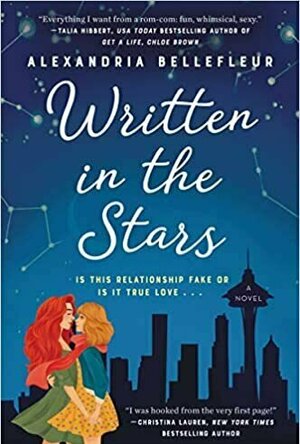
Written in the Stars
Book
"I was hooked from the very first page!” – Christina Lauren, New York Times bestselling author...
Darren (1599 KP) rated Point Blank (2019) in Movies
Jul 25, 2019
Story: Point Blank starts when emergency room nurse Paul (Mackie) is preparing to have his first child with his wife Taryn (Parris), she is due within weeks, but she gets kidnapped by Mateo (Cooke) who wants Paul to help his injured brother Abe (Grillo) escape from the emergency room after being accused of murdering the DA.
Paul and Abe go on the run with LT Lewis (Harden) tracking them down as we see just who was really behind the murder of the DA.
Thoughts on Point Blank
Characters – Paul is an emergency room nurse, he is married and about to start his family, his life is exactly where he wants it. His life takes a big change one this day when he gets forced to help a murder suspect escape from the hospital to save his pregnant wife, meaning he will need to start breaking the law to save her. Abe is the gun for hire that has been injured in the incident, he is the prime suspect and is being set up, where his brother is trying to help him escape, he is street smart and has connections in the criminal world which will help him stay ahead of the law. LT Lewis is the one trying to track down the pair trying to put away the person that killed the DA. Mateo is the brother of Abe that has gone to the extremes to try and get his brother out of custody.
Performances – Anthony Mackie and Frank Grillo do everything they can with this film, Grillo is starting make a name for himself in the trashing action films now, where he can play the bad boy with ease, Mackie doesn’t do much that you wouldn’t expect from him here though. Marcia Gay Harden gives us the basic cop figure, while Christian Cooke completes the main cast with a basic enough performance.
Story – The story here follows an emergency nurse that must help a murder suspect to save his kidnapped wife. This is a basic story which I always say is all you need for action at times, this is a remake of a French film, but we are lacking that one thing a good action film needs a villain that feels like a threat, we do get many suspects to who the villain might be because it is clear that Abe never committed a crime. We get moments of the unlikely couple needing to work together only for them to not have enough conflict about what is happening. This is basic storytelling that just never gets intense enough to the level it could do.
Action – The action involved in the film is the highlight of the film, even if a lot is basic, it does bring the film to life with the car chases involved.
Settings – The film is set in a big city which does help us understand how many people can be getting crimes done with ease.
Scene of the Movie – Big D
That Moment That Annoyed Me – Not enough villain potential.
Final Thoughts – This is a mostly by the book action film that just doesn’t get going.
Overall: Forgettable Action Film.
Paul and Abe go on the run with LT Lewis (Harden) tracking them down as we see just who was really behind the murder of the DA.
Thoughts on Point Blank
Characters – Paul is an emergency room nurse, he is married and about to start his family, his life is exactly where he wants it. His life takes a big change one this day when he gets forced to help a murder suspect escape from the hospital to save his pregnant wife, meaning he will need to start breaking the law to save her. Abe is the gun for hire that has been injured in the incident, he is the prime suspect and is being set up, where his brother is trying to help him escape, he is street smart and has connections in the criminal world which will help him stay ahead of the law. LT Lewis is the one trying to track down the pair trying to put away the person that killed the DA. Mateo is the brother of Abe that has gone to the extremes to try and get his brother out of custody.
Performances – Anthony Mackie and Frank Grillo do everything they can with this film, Grillo is starting make a name for himself in the trashing action films now, where he can play the bad boy with ease, Mackie doesn’t do much that you wouldn’t expect from him here though. Marcia Gay Harden gives us the basic cop figure, while Christian Cooke completes the main cast with a basic enough performance.
Story – The story here follows an emergency nurse that must help a murder suspect to save his kidnapped wife. This is a basic story which I always say is all you need for action at times, this is a remake of a French film, but we are lacking that one thing a good action film needs a villain that feels like a threat, we do get many suspects to who the villain might be because it is clear that Abe never committed a crime. We get moments of the unlikely couple needing to work together only for them to not have enough conflict about what is happening. This is basic storytelling that just never gets intense enough to the level it could do.
Action – The action involved in the film is the highlight of the film, even if a lot is basic, it does bring the film to life with the car chases involved.
Settings – The film is set in a big city which does help us understand how many people can be getting crimes done with ease.
Scene of the Movie – Big D
That Moment That Annoyed Me – Not enough villain potential.
Final Thoughts – This is a mostly by the book action film that just doesn’t get going.
Overall: Forgettable Action Film.
Ivana A. | Diary of Difference (1171 KP) rated Circe in Books
Aug 21, 2018
<a href="https://diaryofdifference.com/">Blog</a>; | <a href="https://www.facebook.com/diaryofdifference/">Facebook</a>; | <a href="https://twitter.com/DiaryDifference">Twitter</a>; | <a href="http://innahcrazy.tumblr.com/">Tumblr</a>; | <a href="https://www.instagram.com/diaryofdifference/">Instagram</a>; | <a href="https://www.pinterest.co.uk/diaryofdifference/pins/">Pinterest</a>; |
<b><i>WHEN I WAS BORN, the name for what I was did not exist.<i/></b>
<img src="https://gipostcards.files.wordpress.com/2018/07/maxresdefault.jpg?w=636"/>;
I was waiting for two whole months to get this book from the library. And I finally had a chance to read Circe from Madeline Miller. A book that everyone was talking about. The only thing you were gonna see on Instagram. Well, here I am – sitting with the cool kids now, I’ve read this book.
The reason I wanted to read this book wasn’t because I wanted to be part of the cool kids. Actually, it was because Greek Mythology has a special place in my heart. See, I was born in Macedonia, a country full of history, and so very close to Greece, where histories and cultures and traditions match and mix.
When I was in school, our teachers focused hard on history. Especially Roman and Greek Mythology. So yes, I grew up with Homer’s Iliad and Odyssey and yes, I know all the gods out there, what they do, who they married, who their children are.
I have read about Circe, but I have never given her any meaning, as she is not mentioned a lot in Homer’s works, as you might already know. And then suddenly, there is a book about her life. I had to read it!!!
<b><i>AND I ABSOLUTELY LOVED IT! FROM THE BOTTOM OF MY HEART!</i></b>
This might be my favorite book of 2018!
<img src="https://gipostcards.files.wordpress.com/2018/07/img_20180625_200755_238.jpg?w=636"/>;
I enjoyed Madeline’s writing style. It was so explanatory and calm, and soothing, like swimming in nice calm waters. You would just gulp her words as you read, and before you know it, you have read 200 pages.
Circe, oh Circe! Her character was so well described – such a strong powerful woman. We start with her childhood, to her growing up, and we follow the process of how she learned things the hard way, how she is naive, and then suddenly isn’t, how she discovers the power she holds within, despite everyone else mocking her and saying otherwise. We see how she decides to say no, how she is not afraid to be a rebel, and how she suffers, and loves, and protects, and cares, and survives, and lives!
You will read a story about the love a mother has toward her child, the love a woman has toward her man, the love a son has towards her mother, the love for freedom, the love for glory…
If you love Greek Mythology, you will get the chance to say hi to some of your favourite gods, nymphs, titans, monsters – Zeus, Athena, Poseidon, Prometheus, Odysseus and many more which I will fail to reveal.
I hardly believe that this is a great book for introducing Greek Mythology to new young readers. I also hardly believe that this book will change the thoughts of many people, the way they see things, the way they live, the way they think.
It was one of my favorite things about him: how he always fought for his chance.
There are a lot of side characters that give their own meaning to the story as well, and there is also Odysseus, and at times it feels as this is his story, but in the end you realized that this story belongs to Circe only.
<b><i>Do not listen to your enemy, Odysseus had once told me. Look at them. It will tell you everything.
I looked. Armed and armored, she was (Athena), from head to foot, helmet, spear, aegis, greaves. A terrifying vision: the goddess of war, ready for battle. But why had she assembled such a panoply against me, who knew nothing of combat? Unless there was something else she feared, something that made her feel somehow stripped and weak.
Instinct carried me forward, the thousand hours I had spent in my father’s halls, and with Odysseus polymetis, man of so many wiles.</i></b>
To all of you out there – please take your time to read this book! It will leave you breathless, inspired, motivated and it will change your life forever. It changed my life – that’s for certain!
<b><i>WHEN I WAS BORN, the name for what I was did not exist.<i/></b>
<img src="https://gipostcards.files.wordpress.com/2018/07/maxresdefault.jpg?w=636"/>;
I was waiting for two whole months to get this book from the library. And I finally had a chance to read Circe from Madeline Miller. A book that everyone was talking about. The only thing you were gonna see on Instagram. Well, here I am – sitting with the cool kids now, I’ve read this book.
The reason I wanted to read this book wasn’t because I wanted to be part of the cool kids. Actually, it was because Greek Mythology has a special place in my heart. See, I was born in Macedonia, a country full of history, and so very close to Greece, where histories and cultures and traditions match and mix.
When I was in school, our teachers focused hard on history. Especially Roman and Greek Mythology. So yes, I grew up with Homer’s Iliad and Odyssey and yes, I know all the gods out there, what they do, who they married, who their children are.
I have read about Circe, but I have never given her any meaning, as she is not mentioned a lot in Homer’s works, as you might already know. And then suddenly, there is a book about her life. I had to read it!!!
<b><i>AND I ABSOLUTELY LOVED IT! FROM THE BOTTOM OF MY HEART!</i></b>
This might be my favorite book of 2018!
<img src="https://gipostcards.files.wordpress.com/2018/07/img_20180625_200755_238.jpg?w=636"/>;
I enjoyed Madeline’s writing style. It was so explanatory and calm, and soothing, like swimming in nice calm waters. You would just gulp her words as you read, and before you know it, you have read 200 pages.
Circe, oh Circe! Her character was so well described – such a strong powerful woman. We start with her childhood, to her growing up, and we follow the process of how she learned things the hard way, how she is naive, and then suddenly isn’t, how she discovers the power she holds within, despite everyone else mocking her and saying otherwise. We see how she decides to say no, how she is not afraid to be a rebel, and how she suffers, and loves, and protects, and cares, and survives, and lives!
You will read a story about the love a mother has toward her child, the love a woman has toward her man, the love a son has towards her mother, the love for freedom, the love for glory…
If you love Greek Mythology, you will get the chance to say hi to some of your favourite gods, nymphs, titans, monsters – Zeus, Athena, Poseidon, Prometheus, Odysseus and many more which I will fail to reveal.
I hardly believe that this is a great book for introducing Greek Mythology to new young readers. I also hardly believe that this book will change the thoughts of many people, the way they see things, the way they live, the way they think.
It was one of my favorite things about him: how he always fought for his chance.
There are a lot of side characters that give their own meaning to the story as well, and there is also Odysseus, and at times it feels as this is his story, but in the end you realized that this story belongs to Circe only.
<b><i>Do not listen to your enemy, Odysseus had once told me. Look at them. It will tell you everything.
I looked. Armed and armored, she was (Athena), from head to foot, helmet, spear, aegis, greaves. A terrifying vision: the goddess of war, ready for battle. But why had she assembled such a panoply against me, who knew nothing of combat? Unless there was something else she feared, something that made her feel somehow stripped and weak.
Instinct carried me forward, the thousand hours I had spent in my father’s halls, and with Odysseus polymetis, man of so many wiles.</i></b>
To all of you out there – please take your time to read this book! It will leave you breathless, inspired, motivated and it will change your life forever. It changed my life – that’s for certain!
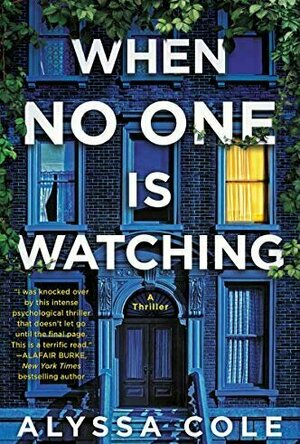
When No One Is Watching
Book
Rear Window meets Get Out in this gripping thriller from a critically acclaimed and New York Times...
Lee (2222 KP) rated Brightburn (2019) in Movies
Jun 11, 2019
What if Clark Kent grew up to be evil? What if, instead of growing up to be this all powerful protector of Earth and humanity, he decided he wanted to take the world, cruelly toying with and destroying humanity in the process? That's the premise behind Brightburn, a superhero horror movie from producer James Gunn, of Guardians of the Galaxy fame. Comic books are littered with plenty of 'what if' story-lines and alternate takes on popular superheroes, but up until now probably the most famous onscreen version of an evil Superman we've seen was in Superman III. And even then we only really got a drunk, unshaven, but still family friendly Superman, who felt a bit mischievous and blew out the Olympic torch for a bit of a laugh. Brightburn goes a lot darker, leaning heavily into horror with some wonderful, wince-inducing gory moments. If you're looking for Dark Phoenix levels of dark - moody, crying in the corner, that kind of thing - then you're going to be disappointed.
Brightburn begins by mirroring the origin story of Superman very closely - even the soundtrack reminded me of the music from 2013 movie Man of Steel on more than one occasion! Tori (Elizabeth Banks) and Kyle Bryer (David Denman) are a happily married couple, living on a farm and longing for a child of their own. And then one night, a meteor crash lands out in the nearby woods, bringing them a baby boy who they adopt as their own. We see home movies of a normal baby/toddler as he grows up as part of a normal, loving family. And then we move forward 10 years to present day.
As an adolescent, Brandon (Jackson A. Dunn) begins to experience some change in his life. His parents put it down to hormones, and attempt to give him the talk on girls and the facts of life, but it's a lot more than that. The rock shaped vessel which carried Brandon to Earth as a baby has been locked away in the family barn all these years, hidden from Brandon, but has now started glowing red. At the same time, something within Brandon appears to have been activated, and a number of small but disturbing incidents that follow leave his parents worried. They also realise that they've never actually seen their son bleed, or even hurt before. From there, the severity of these incidents increases greatly, and it becomes clear that there is definitely something very, very wrong with Brandon.
What I loved about Brightburn was the confined, low key setting of it all. The action is restricted primarily to the town of Brightburn, never really expanding into the worldwide, CGI heavy destruction of other superhero movies. We have an incredibly relatable mother who is out to love and protect her son until the bitter end, a father who becomes scared and horrified by everything that is unfolding, and then this powerful boy tearing the family apart - unpredictable and showing no sign of remorse or inner turmoil over everything that is happening. Outside of that, the action is confined to a relatively small cast - the local police, extended family and some other kids from school who we all follow throughout the movie - there's a lot of character depth to be found in Brightburn, which greatly adds to its overall enjoyment.
As is the norm these days though, the trailer does give away the majority of Brandon's targets and where he attacks them, meaning you kind of know what to expect for a lot of it. However, what the trailer doesn't give away is the atmosphere and the eeriness that builds to each of those shocking (and gory) moments and there are still plenty of jump scares and shocking scenes to keep you on your toes throughout. It builds to a climax which once again isn't a CGI overload, relying on shock and horror to deliver it's interesting conclusion. And, most importantly, it leaves the door open for what could be a very interesting sequel. I'm all up for that, and the direction that hints at, as I found Brightburn to be a very enjoyable and fresh take on the superhero genre.
Brightburn begins by mirroring the origin story of Superman very closely - even the soundtrack reminded me of the music from 2013 movie Man of Steel on more than one occasion! Tori (Elizabeth Banks) and Kyle Bryer (David Denman) are a happily married couple, living on a farm and longing for a child of their own. And then one night, a meteor crash lands out in the nearby woods, bringing them a baby boy who they adopt as their own. We see home movies of a normal baby/toddler as he grows up as part of a normal, loving family. And then we move forward 10 years to present day.
As an adolescent, Brandon (Jackson A. Dunn) begins to experience some change in his life. His parents put it down to hormones, and attempt to give him the talk on girls and the facts of life, but it's a lot more than that. The rock shaped vessel which carried Brandon to Earth as a baby has been locked away in the family barn all these years, hidden from Brandon, but has now started glowing red. At the same time, something within Brandon appears to have been activated, and a number of small but disturbing incidents that follow leave his parents worried. They also realise that they've never actually seen their son bleed, or even hurt before. From there, the severity of these incidents increases greatly, and it becomes clear that there is definitely something very, very wrong with Brandon.
What I loved about Brightburn was the confined, low key setting of it all. The action is restricted primarily to the town of Brightburn, never really expanding into the worldwide, CGI heavy destruction of other superhero movies. We have an incredibly relatable mother who is out to love and protect her son until the bitter end, a father who becomes scared and horrified by everything that is unfolding, and then this powerful boy tearing the family apart - unpredictable and showing no sign of remorse or inner turmoil over everything that is happening. Outside of that, the action is confined to a relatively small cast - the local police, extended family and some other kids from school who we all follow throughout the movie - there's a lot of character depth to be found in Brightburn, which greatly adds to its overall enjoyment.
As is the norm these days though, the trailer does give away the majority of Brandon's targets and where he attacks them, meaning you kind of know what to expect for a lot of it. However, what the trailer doesn't give away is the atmosphere and the eeriness that builds to each of those shocking (and gory) moments and there are still plenty of jump scares and shocking scenes to keep you on your toes throughout. It builds to a climax which once again isn't a CGI overload, relying on shock and horror to deliver it's interesting conclusion. And, most importantly, it leaves the door open for what could be a very interesting sequel. I'm all up for that, and the direction that hints at, as I found Brightburn to be a very enjoyable and fresh take on the superhero genre.
Jesters_folly (230 KP) rated The Fast and the Furious (2001) in Movies
May 18, 2021
Contains spoilers, click to show
So this is the first time I've seen 'The Fast and the Furious' and the only other film in the franchise I've seen is 'Hobbs and Shaw', Which I knew was a (slightly) different beast but, with the new film out soon I thought I may as well start from the beginning.
First thoughts, 'The Fast and the Furious' is 'Point Brake' with cars instead of of surf boards. It's been a while since I've seen Point break but I'm sure the plots are very similar. Actually that's not quite true, my first thoughts were that it was a high school film with the races instead of the school. The first time we meet Dominic's Team they're acting like the typical 'Jock' or bully group who pick on the 'New kid' or weirdo, in this case Brian. Then we have the first race we see Brian at, when he looks around the track we see the different 'clicks', each one represented by a (slightly) different genre of music, all we needed was for one of the characters (probably Letty or Mia) to walk on and introduce the group's "Over here we have the goth's, there are the cheerleaders." etc.
Then the film settles down to 'Point Break mode, the big revel (near the start of the film) that (Spoilers) Brian is a cop and we're introduced to the people he works with and, to be honest they would almost fit into an 80's U.K. police show (or 'Life on mars/Ashes to Ashes' for those of you are too young for the 80's).
We have lots of cars and almost no crime. Really most of the crime is just talked about or a red herring. Then the big race, but we don't see that because we now have the actual heist and the set up Brian's big decision (although it's pretty obvious which side he'll choose). Big action scene, betrayed (kind off), some one dies for character development (but, surprisingly, not a woman), another race, for reasons, character bonding. Cut to credits.
So a bit formulaic, but that ok, a bit of Macho one upping, but that's ok, lots of cars, of course and surprisingly no sex. All of which is good, it suits the film. Even the early revel that Brian is a cop is ok, you don't need to put much though into 'The Fast and the Furious' meaning that you can just sit back 1 hour 45 and enjoy a no brainer whilst turning off your brain.
First thoughts, 'The Fast and the Furious' is 'Point Brake' with cars instead of of surf boards. It's been a while since I've seen Point break but I'm sure the plots are very similar. Actually that's not quite true, my first thoughts were that it was a high school film with the races instead of the school. The first time we meet Dominic's Team they're acting like the typical 'Jock' or bully group who pick on the 'New kid' or weirdo, in this case Brian. Then we have the first race we see Brian at, when he looks around the track we see the different 'clicks', each one represented by a (slightly) different genre of music, all we needed was for one of the characters (probably Letty or Mia) to walk on and introduce the group's "Over here we have the goth's, there are the cheerleaders." etc.
Then the film settles down to 'Point Break mode, the big revel (near the start of the film) that (Spoilers) Brian is a cop and we're introduced to the people he works with and, to be honest they would almost fit into an 80's U.K. police show (or 'Life on mars/Ashes to Ashes' for those of you are too young for the 80's).
We have lots of cars and almost no crime. Really most of the crime is just talked about or a red herring. Then the big race, but we don't see that because we now have the actual heist and the set up Brian's big decision (although it's pretty obvious which side he'll choose). Big action scene, betrayed (kind off), some one dies for character development (but, surprisingly, not a woman), another race, for reasons, character bonding. Cut to credits.
So a bit formulaic, but that ok, a bit of Macho one upping, but that's ok, lots of cars, of course and surprisingly no sex. All of which is good, it suits the film. Even the early revel that Brian is a cop is ok, you don't need to put much though into 'The Fast and the Furious' meaning that you can just sit back 1 hour 45 and enjoy a no brainer whilst turning off your brain.
Merissa (13597 KP) rated Seaborn in Books
Oct 19, 2018
Seaborn by Lena North
Seaborn is the first in a new series, loosely linked to another series by the same author. In this story, we meet Charlie, or Lottie as she is known at that time. She is running for her life, away from an abusive ex. It is told in enough detail that your sympathy is with her immediately, whilst dropping you straight into the story. She is taken to an island where she meets a group of people who end up meaning more to her than she ever thought possible.
I went into this story not really expecting too much. I'd been burnt by a couple of stories where the blurb really drew me in, and yet the story left me cold. This was one of the opposite cases where I was blown away by what I received!
The characters are all well-rounded, whether you like them or not. Some of them are fantastic - I'm looking at you Dupree! And others are... not. I'll leave it to you to figure that one out! The writing is exceptional, with no editing or grammatical errors that disrupted my reading. However, full disclosure, I don't know if I'd notice them anyway, as I was thoroughly engrossed with the story. I went through a whole gamut of emotions whilst reading this - from horror and pity to a situation, to disgust, to laughter, to crying. It was all here, and I was an emotional wreck by the time I finished this book.
This is the first book by this author I have read, and it won't be the last. How do I know this for sure? Because on the back of reading this book, I have immediately purchased the WHOLE Dreughan and Birds of a Feather series - that's a further eight books I now have by this author, and I can't wait to lose myself in her worlds again.
Absolutely and highly recommended by me.
* A copy of this book was provided to me with no requirements for a review. I voluntarily read this book, and the comments here are my honest opinion. *
Merissa
Archaeolibrarian - I Dig Good Books!
I went into this story not really expecting too much. I'd been burnt by a couple of stories where the blurb really drew me in, and yet the story left me cold. This was one of the opposite cases where I was blown away by what I received!
The characters are all well-rounded, whether you like them or not. Some of them are fantastic - I'm looking at you Dupree! And others are... not. I'll leave it to you to figure that one out! The writing is exceptional, with no editing or grammatical errors that disrupted my reading. However, full disclosure, I don't know if I'd notice them anyway, as I was thoroughly engrossed with the story. I went through a whole gamut of emotions whilst reading this - from horror and pity to a situation, to disgust, to laughter, to crying. It was all here, and I was an emotional wreck by the time I finished this book.
This is the first book by this author I have read, and it won't be the last. How do I know this for sure? Because on the back of reading this book, I have immediately purchased the WHOLE Dreughan and Birds of a Feather series - that's a further eight books I now have by this author, and I can't wait to lose myself in her worlds again.
Absolutely and highly recommended by me.
* A copy of this book was provided to me with no requirements for a review. I voluntarily read this book, and the comments here are my honest opinion. *
Merissa
Archaeolibrarian - I Dig Good Books!
<i>This eBook was provided by the publisher via NetGalley in exchange for an honest</i>
People grieve in many different ways, as Shari Arnold shows in her young adult novel <i>Neverland</i>. It has been four months since seventeen-year-old Livy lost her little sister Jenna to leukemia. Her mother has become a workaholic, her father a ghost, but Livy has become determined to help as many sick children as she can, either by reading to them or becoming a bone marrow donor. Livy’s life revolves solely around the children at the hospital but things begin to change when she meets the mysterious Meyer who takes her out of her comfort zone and challenges her to have fun.
As suggested by the title, <i>Neverland</i> is based upon the well-known story of Peter Pan. Meyer, like Peter, loves an adventure and whisks Livy away to do things she would never have thought to do on her own. By showing Livy how to have fun, Meyer hopes to encourage her to move on, but the big question is, is Livy ready to live without her sister?
The first part of the book has a contemporary setting that makes the story appear to be the typical girl meets boy who makes everything better type of novel, however the second section is completely different. Part two is so full of fantasy and magical ideas that it feels like a completely different book. Initially it was exciting when Meyer was something of an enigma, but suddenly the story becomes childish and fake once his true identity has been revealed, thus making the novel less gripping.
Nonetheless, <i>Neverland</i> is very moving as is anything regarding the death of young children. Arnold provides an interesting retelling of the delightful fairytale giving a totally new meaning to the children who do not grow up. Those who enjoy contemporary and fantasy novels will enjoy both elements however some readers expecting a young adult love story may be disappointed with the unrealistic turn the novel takes part way through.
People grieve in many different ways, as Shari Arnold shows in her young adult novel <i>Neverland</i>. It has been four months since seventeen-year-old Livy lost her little sister Jenna to leukemia. Her mother has become a workaholic, her father a ghost, but Livy has become determined to help as many sick children as she can, either by reading to them or becoming a bone marrow donor. Livy’s life revolves solely around the children at the hospital but things begin to change when she meets the mysterious Meyer who takes her out of her comfort zone and challenges her to have fun.
As suggested by the title, <i>Neverland</i> is based upon the well-known story of Peter Pan. Meyer, like Peter, loves an adventure and whisks Livy away to do things she would never have thought to do on her own. By showing Livy how to have fun, Meyer hopes to encourage her to move on, but the big question is, is Livy ready to live without her sister?
The first part of the book has a contemporary setting that makes the story appear to be the typical girl meets boy who makes everything better type of novel, however the second section is completely different. Part two is so full of fantasy and magical ideas that it feels like a completely different book. Initially it was exciting when Meyer was something of an enigma, but suddenly the story becomes childish and fake once his true identity has been revealed, thus making the novel less gripping.
Nonetheless, <i>Neverland</i> is very moving as is anything regarding the death of young children. Arnold provides an interesting retelling of the delightful fairytale giving a totally new meaning to the children who do not grow up. Those who enjoy contemporary and fantasy novels will enjoy both elements however some readers expecting a young adult love story may be disappointed with the unrealistic turn the novel takes part way through.
Faris Badwan recommended track Bells Ring by Mazzy Star in So Tonight That I Might See by Mazzy Star in Music (curated)

The Message Bible (MSG)
Book and Education
App
This is not a study Bible, but rather "a reading Bible." For more than two years, Eugene Peterson...
